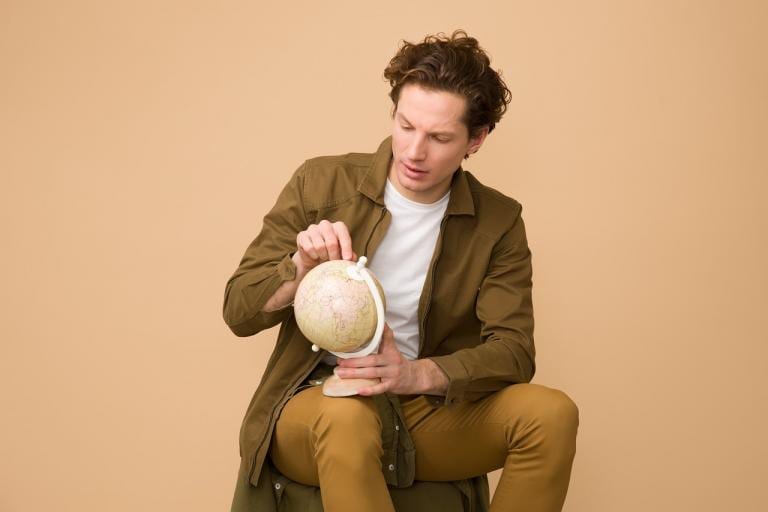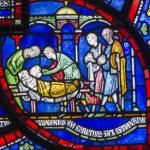We often note how human beings “play God” and, following the Serpent’s temptation (Gen. 3:5), want to “be God.” But what kind of God do we want to be? We don’t want to be like the real God, who loves, redeems, and saves. Rather, we want to be the detached god of the Deists. My new book, Post-Christian: A Guide to Contemporary Thought and Culture, explores this.
We want to be omniscient, to know everything. We can have this trait of the deity, we think, through the practice of science, in which we carefully observe the external universe so that we can know and understand it. To accomplish this, though, we must be separate from what we are observing. We thus situate ourselves outside that universe, transcending it, like the ever-observing but never-interfering God of the Deists.
We want to be omnipotent, to exert power over everything. This we can achieve, we think, by means of technology, which lets us overcome our limitations and control objective reality. Again, we stand outside of nature, which we force to do our bidding.
From my book Post-Christian:
So the human being stands outside of nature. The modernist imagines the human mind observing, understanding, and exploiting the natural order, thus mastering it. The postmodernist imagines the human mind creating reality, whether by constructing truth or by taking the raw materials of nature and technologically making new realities out of them, thus bending nature to the human will.
Christian critiques often accuse human beings of taking on the role of God. But notice what kind of god we try to make ourselves into. When we take the place of God, we do not emulate the Christian God who cares for his creation, is providentially involved in its every facet, and became incarnate for its redemption. Rather, we try to make ourselves into the god of deism, the impersonal, detached deity of the Enlightenment’s “rational religion” that makes and observes. If we are gods, we are watchmaker gods.
The actual deists of the eighteenth century believed that their deity was, in some sense, righteous, overseeing a moral order. But in our role as gods, we are not righteous at all, demanding that reality serve and obey us but doing nothing that brings salvation. Our very attempts to exalt ourselves to the point of taking God’s place disclose how sinful and small we are, as the god we turn ourselves into is pathetic, tyrannical, unloving, and unworthy of worship.
I go on to argue that this sense of detachment from nature, from reality, is at the root of many of our problems today. The environmentalists, to their credit, demonstrate the importance of honoring and protecting nature. And, yet, when environmentalists speak of “nature,” they have in mind forests, mountains, and wildlife. Anything human is not “natural.” Indeed, civilization is the enemy of nature, and human beings have the God-like power to destroy nature, which they envision as fragile and at the mercy of “Man.” Once more, human beings are separate and are at a distance from the natural order, a mindset that contributes to environmental problems, among many others, such as hostility to childbirth, our repudiation of our bodies, our withdrawal into all kinds of virtual realities, our belief that we can construct our own truths, etc.
I suggest thinking not just in terms of “nature” but of “reality.” Constructivists who believe they create their own truth are rebelling not just against God but against reality. And reality always, eventually, imposes itself. Still better, we should think in terms of “creation.” From the book:
We human beings need to recover our creatureliness. We must come to realize that for all of our scientific reasoning and our technological creations, we are creatures. We do not create the world, as the constructivists imagine. Nor do we create ourselves, as is the assumption of self-help videos and “you-can-be-whatever-you-choose”philosophies. Rather, we have been created by a Creator other than ourselves, which makes us part of a created order. We are answerable to this created order and must live within its terms. This objective, physical creation is not meaningless, leaving human beings to make up their own subjective meanings, but is rather charged with meaning. But the Creator loves us. He is active in and through his creation, bestowing his gifts and carrying out his saving purposes.
Our civilizations, technologies, and communities are also part of this created order, no less than forests, mountains, and wildlife. As later chapters will show, our current problems with sexuality, our social dysfunctions, and our religious confusions also have to do with losing our sense of creatureliness. This entails going beyond nature to creation. And to embrace creation, we must know the Creator.
Image by Icons8_team from Pixabay














